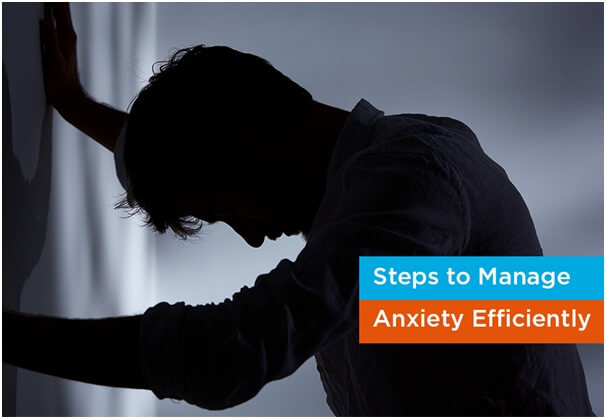
All of us worry. All of us have, at some point, had butterflies in the stomach. We feel nervous and our body joins in by increasing the heart rate, sweating, making the stomach uneasy, clenching the muscles, etc. It is normal to experience this feeling in certain common situations: for example, before giving a speech on stage, during exams, while playing adventurous sports, or before an interview. However, when this tension goes beyond a certain level and tends to persist throughout the day or for a prolonged period of time for no apparent reason, then it is a problem.
What is anxiety?
Anxiety is an emotion characterised by worry, negative thoughts, and physical changes such as increased blood pressure. When the feeling becomes disproportionate in comparison to the stressor, it is classified as a disorder. People with an anxiety disorder (especially generalised anxiety disorder) worry chronically about nonspecific situations or events that haven’t even come to pass or are not even likely to happen. Sometimes, they cannot identify the cause of their anxiety. They have excessive and long-lasting anxiety about vague happenings in the future. They experience negative intrusive thoughts, and always expect the worst.
Other anxiety disorders include panic attacks, characterised by sudden attacks of extreme fear, shaking, dizziness, nausea, breathing difficulties, and confusion; social anxiety, which involves fear of public embarrassment; phobias or irrational fears of objects or situations; obsessive-compulsive disorder; post-traumatic stress disorder, and so on.
How to manage anxiety
Anxiety problems, if exceeding a certain limit, should be immediately addressed by a professional psychologist. While the affected person does have an important role in the recovery process, therapeutic guidance is necessary. Think of it as a disease or a disorder – just as you’d need a doctor for physical treatment, you also need a doctor for your mind.
Other than that, there are certain methods to manage your anxiety.Some of them are as follows:
- Eat well-balanced meals. Anxiety may leave you with no time or inclination to focus on life-sustaining activities, but it is extremely important to give your body the energy it requires.
- Exercise regularly. Take walks. Not only will it promote the release of hormones that induce feelings of happiness and relaxation, but also helps you keep fit.
- Get enough sleep. If your anxiety is making you stay up at night, listen to calming nature-sounds or do a breathing exercise before sleeping.
- Avoid alcohol and caffeine. They increase the heart rate and trigger panic attacks. Resort to drinking water instead.
- Do breathing exercises. The 4-7-8 breathing exercise which has origins in a yogic technique called pranayama involves exhaling completely through the mouth, then closing your lips and inhaling through the nose to the count of four, then holding the breath for seven seconds, and exhaling through the mouth with a whoosh for another eight seconds. It relaxes the body and might help you fall asleep faster.
- Go for relaxation techniques such as yoga, meditation, getting a massage, listening to music, etc. It will help you take time out from your problem and also give you physical relaxation.
- Let it out. Talk to someone who is understanding, be it a member of your family, a friend, or a counsellor. You can even get professional help online.
If allowed to persist, anxiety may disrupt your life and even affect your physical health. Visit a psychologist before it becomes unmanageable. After all, mental health is as important as physical health.
Take another positive step towards a healthy future by securing your finances with a health insurance policy. Cigna TTK’s health insurance plans will keep your savings covered while you focus on recovery.





